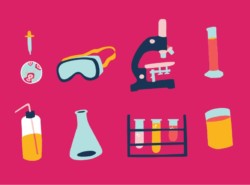
Obesity and breast cancer: understanding the link to identify better treatment strategies
Published: 10/9/19 1:48 AM
Kristy Brown
Two thirds of the Australian female population are overweight or obese which increases their risk of developing hormone receptor-positive breast cancer after menopause.
The hormone estrogen plays a pivotal role as, in addition to being produced by the ovaries, it is also produced by fat and the majority of obesity-related breast cancers are estrogen-dependent.
Dr Kristy Brown’s research program is wide-ranging in its scope and intends to provide better understanding of the regulation of metabolic pathways in cells of the breast with the aim of identifying new therapy options for the effective treatment and prevention of breast cancer.
She is continuing with research that demonstrated a direct metabolic link between obesity and breast cancer and expanding this research to look at the possible interaction between breast inflammation, the metabolism of cells within the breast and the production of estrogen that drives tumour growth.
Additionally, this program will look further into an appetite stimulating protein produced by the gut, called ghrelin, and its potential to inhibit the body’s ability to synthesise estrogen and the growth of breast tumours, including breast cancers with limited available treatments.
Overall this program will take the next steps in building on previous research into new ways of blocking cancers spreading to other sites, provide hope for treating women with limited options, and look at treatments that have fewer side-effects.